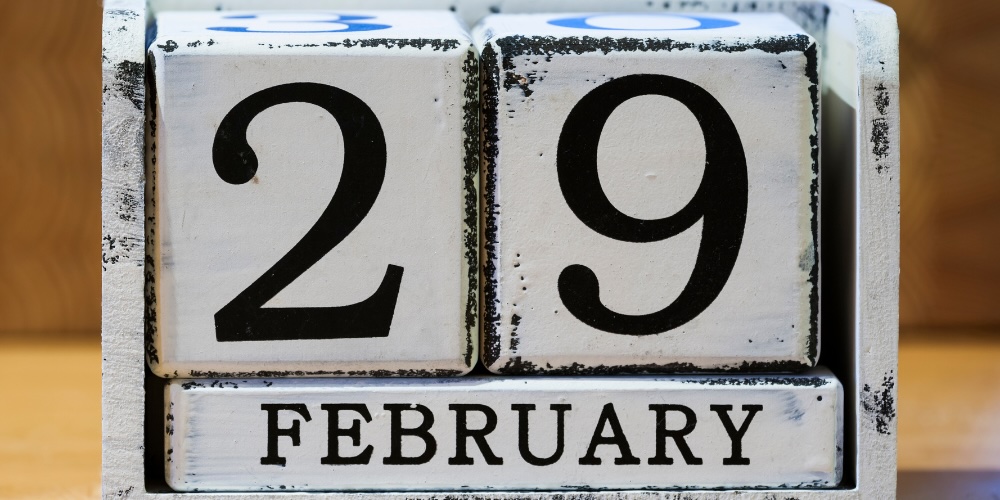WHAT IS LEAP DAY?

2024 is upon us and with the new year comes new goals and checklists. If you were unable to achieve your goals in 2023, the good news is that you’ll have an extra day in 2024 to catch up on those!
We’re entering a leap year, which means February 2024 will have an extra day added to the calendar. Leap days come every four years, so this is our first such year since 2020 and will be our only one until 2028 comes around.
Here’s what to know about leap day, when it falls and why it’s a part of our calendar.
When is leap day?
Leap Day is on Feb. 29, 2024.
While February usually has 28 days (the shortest month of the year), every four years it gets an additional day, i.e. leap day. The last leap day was in 2020.
Leap Day birthday math: How old would you be if you were born on Leap Day?
What is leap day?
Leap day might just seem to be another day on the calendar but it is essential to ensure that our planet’s trip around the sun is in sync with the seasons. Earth takes just under 365¼ days to complete its orbit around the sun, according to timeanddate.com, while the year has 365 days.
If we didn’t observe leap years, our seasons would be thrown off, as our equinoxes and summer and winter solstices would no longer align with the seasons.
“If there were no leap years, the seasons would completely swap every 750 years, i.e. the middle of summer would become the middle of winter − calendar climate change,” astronomy expert Dr. Stephen Hughes of Queensland University of Technology said in a February 2012 (a Leap Year) article on AsianScientist.com.
Why is Feb. 29 leap day?
Choosing February for the leap year and the addition of an extra day dates back to the reforms made to the Roman calendar by Julius Caesar, who was inspired by the Egyptian solar calendar, according to History.com. The Roman calendar, at that time, was based on a lunar system and had a year of 355 days, which was shorter than the solar year. This discrepancy caused the calendar to drift out of sync with the seasons over time.
To address this issue, Julius Caesar introduced the Julian calendar, a solar calendar, which included a leap year system. When the Julian calendar was later refined into the Gregorian calendar in 1582, the tradition of adding a leap day to February persisted.
Beat FOMO by being in the know!
Sign up for our newsletter today and never miss a beat.







